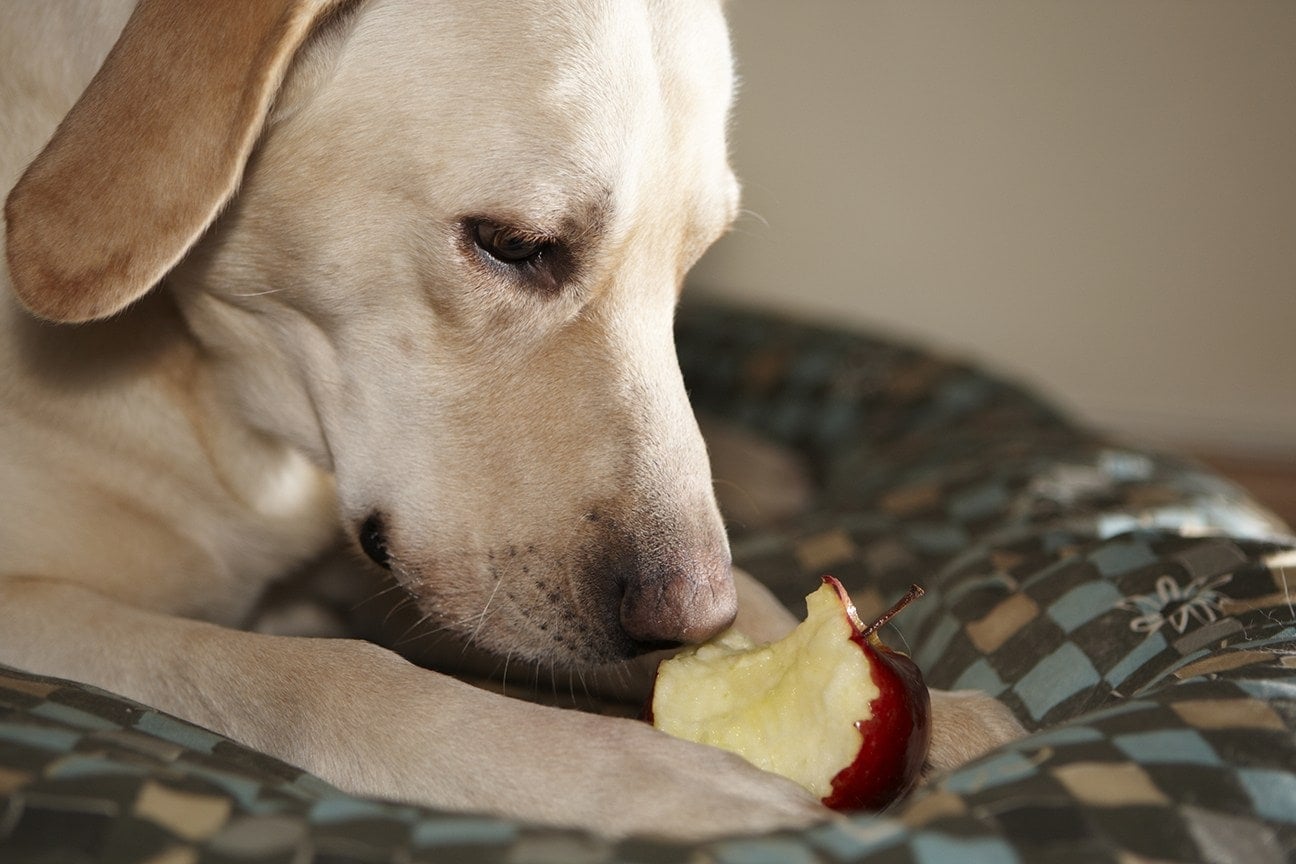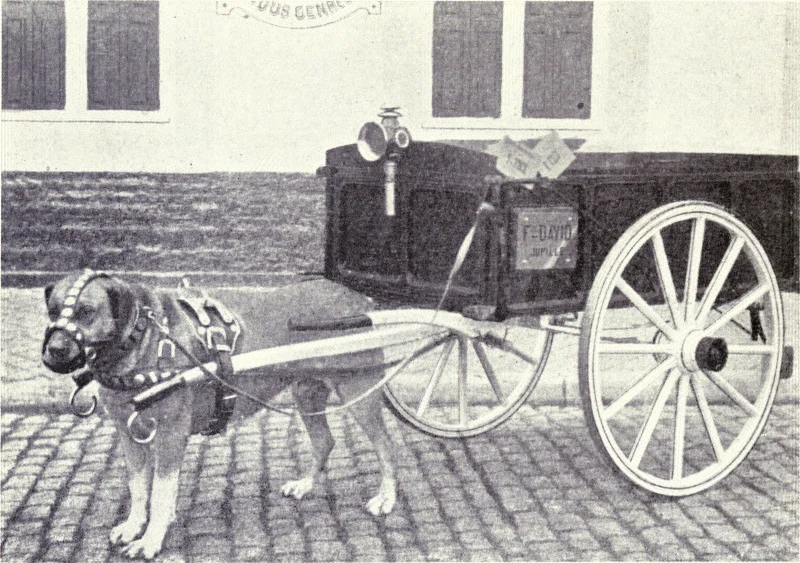Do Dogs Eat Grass When Their Stomach Hurts? 7 Vet-Reviewed Reasons
Updated on
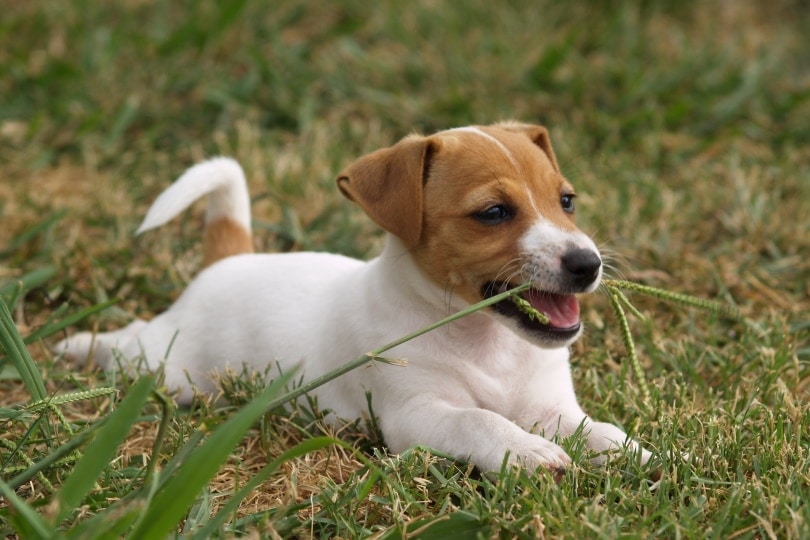
You may have heard that dogs eat grass to make themselves vomit or deal with stomach pain. But the truth is actually much more complicated. Eating grass in small amounts is normal, and there are many reasons why a dog might decide to eat grass. Here are seven of the most common reasons for you to consider if you see your pooch eating grass.
The 7 Reasons the Dogs Eat Grass
1. They’re Bored
The jury is still out about all the reasons dogs eat grass, but boredom is definitely a cause. Dogs often engage in destructive behaviors when bored, including tearing up grass. The destruction might be something to do to take your dog’s mind off the boredom, or it might be a call for attention. You can minimize it by giving your dog lots of exercise, attention, and stimulating toys to play with when you aren’t around.
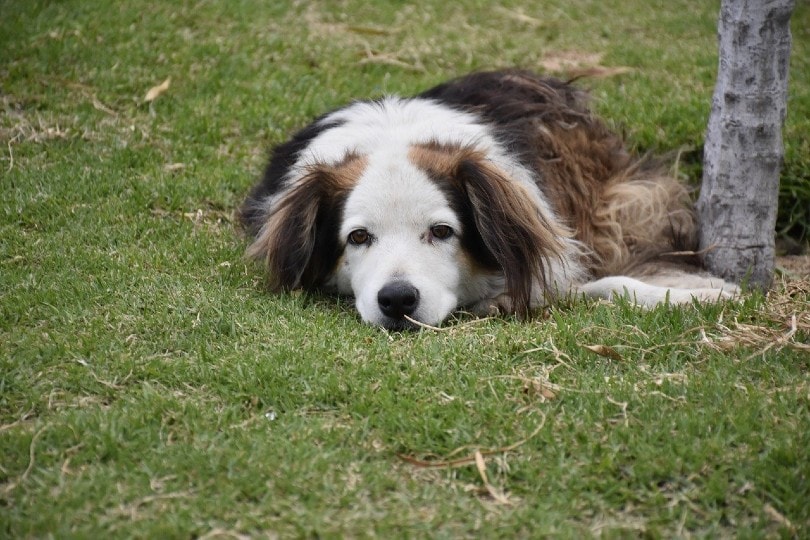
2. They Need Fiber
Another suggestion is that dogs might eat grass because they are low on fiber. Grass and other roughage are full of fiber, and it’s possible that your dog craves grass when he’s not getting enough of it. Fiber helps your dog’s digestive system move smoothly, so if your dog tends to get constipation or diarrhea, it might be linked. Switching to a high-fiber diet can cause your dog to stop eating grass.
3. Nutrient Deficiency
Dogs don’t get much nutritional value from grass, but it’s possible they still try to eat grass because of a nutrient deficiency or caloric deficit. Grass is often easily accessible to your dog, and if your dog isn’t getting enough calories or nutrition from his daily food, it’s possible that grass-snacking fills his stomach or soothes his cravings. Dogs on a diet might try to eat grass to deal with calorie restrictions as well, even though it doesn’t give them many calories.
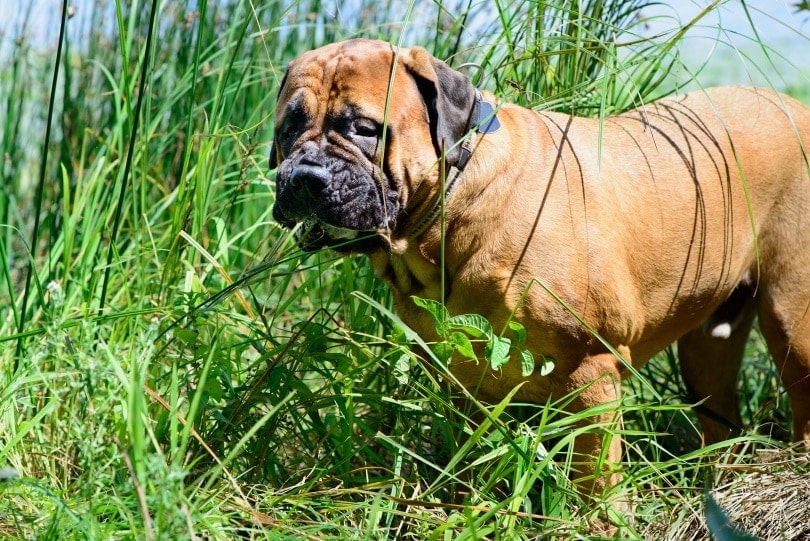
4. Pica
If your dog eats other non-food items regularly, he could have canine pica. This is a disorder that’s found in humans, dogs, and other animals that causes irrational cravings for anything from rocks and dirt to paper, metal, or plastic. Some possible causes include various diseases, psychological abnormalities, and trauma. As you can see, pica is still not very well understood, but speaking to a vet can help you get a diagnosis and treatment plan.
5. Anxiety
If your dog mostly eats grass when he’s alone or when there is conflict in the house, it’s likely that grass-eating is a behavior that’s linked with anxiety in your dog’s mind. Grass might give your dog something to chew on when anxious or be a way for your dog to fidget and distract himself. Anxiety can cause your dog to engage in abnormal behaviors. Working on a treatment plan for anxiety might include addressing the causes of anxiety in your dog’s life and finding solutions to help your dog feel relaxed without being destructive.
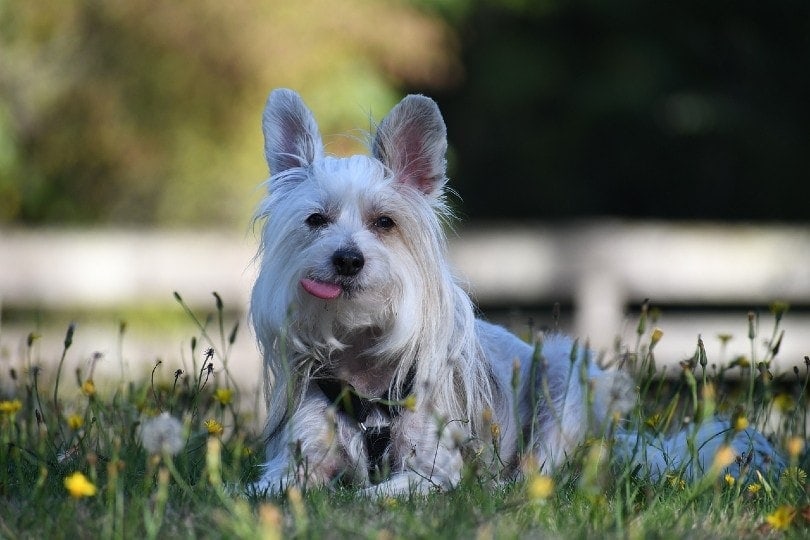
6. Scavenging Instinct
Eating grass is also possibly linked to an inborn scavenging instinct in dogs. Although dogs eat mostly meat, they do have some omnivorous tendencies, and the wild ancestors of dogs likely got nutrition wherever they could, including from plants. Even if your dog is healthy and getting enough food, snacking on other possible food sources, including grass, could be an instinct left over from the days when your dog’s distant grandparents didn’t know where their next meal would come from.
7. Stomach Pain
Many people hear that dogs eat gas to make themselves throw up and treat an upset stomach, but the evidence on that is mixed. Various studies have shown that only a small percentage of dogs vomit after eating grass and that only 9% of dogs involved in grass-eating incidents had any signs of illness before they ate grass. These studies make it unlikely that dogs are purposefully trying to induce vomiting, but it is possible they instinctively seek to eat something to deal with pain.
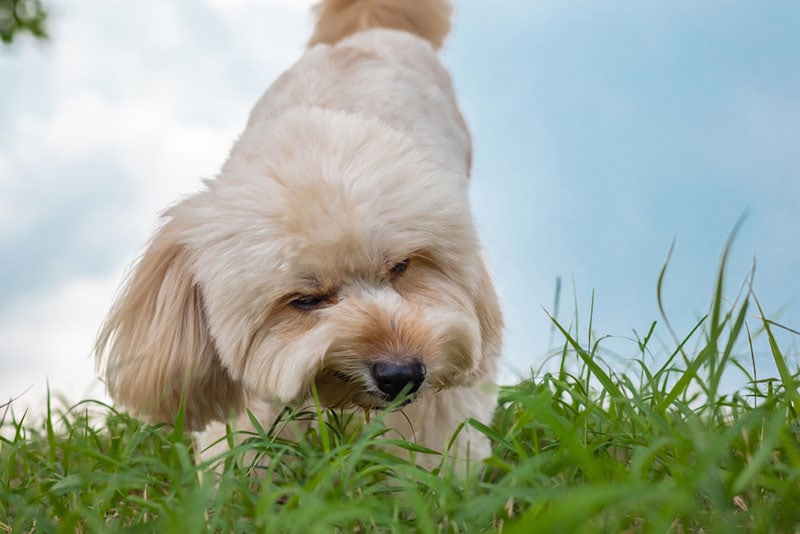
Is Eating Grass Dangerous?
Overall, eating grass is fairly safe for your dog. Many vets consider a small amount of grass healthy. However, there are things you should be careful about before you let your dog eat grass. First off, many grass lawns are treated with pesticides that can be dangerous to your dog. If you want your dog to get a chance to nibble, consider getting a pot of wheatgrass or a similar fast-growing grass just for your dog.
You should also know that large amounts of grass can cause stomach issues or vomiting. Although large amounts of grass aren’t likely to cause serious harm to your dog, it might bring some discomfort to him. Finally, some dogs become destructive of grass, tearing up lawns and causing lasting damage. So even if your lawn isn’t a danger to your dog, your dog might be a danger to the lawn.
Grass Eating Prevention
If you want to stop your dog from eating grass, treating the root cause is often the most effective way. Many of the causes above can be treated by switching to a more nutritious food or monitoring your dog’s health. If your dog still eats grass, you can also restrict your dog’s access to grass to prevent your dog from destroying your lawn or making himself sick.
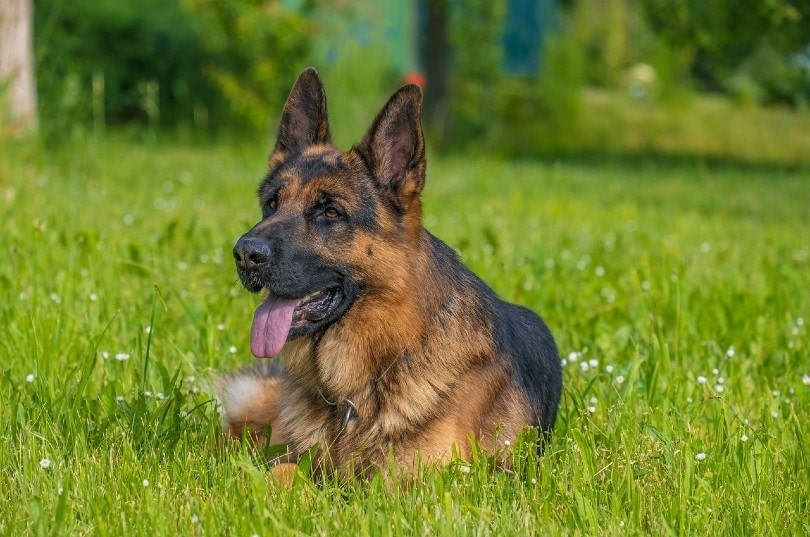
Last Thoughts
As you can see, stomach pain is a possible cause of grass eating, but it isn’t the most common cause. There are many reasons why your dog might chow down on some grassy greens. These seven reasons why your dog might eat grass give a good rundown of some of the possibilities you can explore.
Featured Image Credit: David Dalla Costa, Shutterstock





